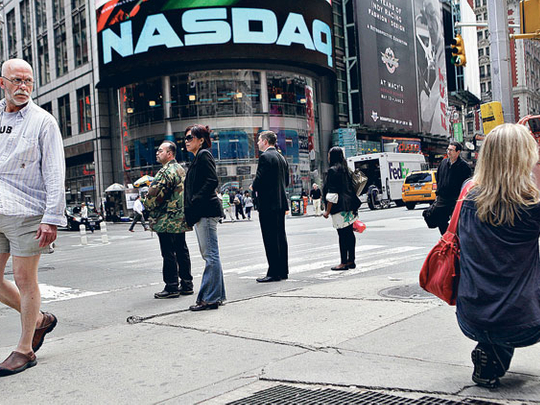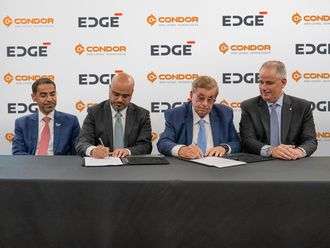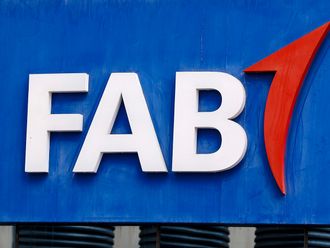
New York: The Securities and Exchange Commission may approve a rule next month that aims to keep short sellers from accelerating stock sell-offs, said Brian Hyndman, the senior vice president in transaction services at Nasdaq OMX Group Inc.
The regulation would take effect when shares fall 10 per cent in a day and require bearish trades be executed above the best existing bid in the market, Hyndman said.
In a short sale, an investor borrows an asset and sells it, hoping to profit from a decline by repurchasing it later at a lower price.
Forcing short sellers to wait for a stock to rise above the best bid price may prevent them from flooding the market with sell orders and causing declines to multiply.
A study by two SEC economists in December 2008 suggested the so-called uptick rules are less effective when needed most, during panics that drive prices down and volatility up.
"There is no empirical data to support the introduction of a new rule," Hyndman said on Friday at a securities industry conference in Chicago. "But this is the least intrusive of the proposals the SEC was considering."
SEC spokesman John Nester declined to comment.
Hyndman expects the SEC to adopt a so-called alternative uptick rule that includes the 10 per cent trigger, changing regulations that were eliminated from US markets in 2007.
The commission asked the public last April to comment on strategies to cushion the impact of short selling following criticism hedge funds and other speculators used trading tactics to deepen market declines that began in 2008.
The Standard & Poor's 500 Index dropped 9.1 per cent in September 2008 after the Lehman Brothers Holdings filed the biggest-ever bankruptcy.
The SEC implemented a ban on short selling more than 900 financial stocks that month after Morgan Stanley Chief Executive Officer John Mack and New York Senator Charles Schumer blamed the practice for driving many companies to the brink of collapse.
The implementation date for the rule is likely to be later in the year, according to Hyndman, who didn't say what he was basing his estimate on.
He said exchanges and brokers will probably have 180 days to upgrade their computer systems to accommodate the regulation.
Nasdaq in New York, Kansas City-based Bats Exchange and Jersey City, New Jersey-based Direct Edge Holdings LLC, which operates two alternative trading centres, have told the SEC that no new restrictions on short selling are needed. Paul Adcock, executive vice president in charge of trading at NYSE Arca, a unit of New York-based NYSE Euronext, said that while most exchanges oppose a new regulation, it's probably inevitable.
Potential impact
"Because the politicians and the public are all banging the drums, we're not going to get away with this one," Adcock said.
The SEC discussed the potential impact of such a rule when it proposed the alternative uptick last August. Because it would restrict short selling more than other proposals being considered, the regulation might "lessen some of the benefits of legitimate short selling, including market liquidity and pricing efficiency," the SEC said.
NYSE Euronext's Adcock raised concern at Friday's conference that so-called circuit breakers triggering the restriction might keep stocks from falling as much as they should when a company reports bad news.
"Do you trigger the 10 per cent when the stock should be trading down?" Adcock said.
Daniel Aromi and Cecilia Caglio, economists at the SEC, said in a December 2008 report that even with uptick rules in place, short sellers in a simulation executed trades 25 per cent faster on average when stocks plunged than when prices were steady.












